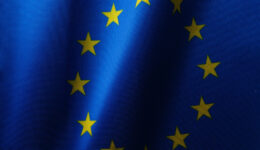MEPs Advocate for Stronger EU Digital Ecosystem and Sovereignty
MEPs urge major investments and regulatory reforms to boost EU digital sovereignty, reduce foreign tech dependence, and enhance secure, interoperable digital infrastructure.

MEPs urge major investments and regulatory reforms to boost EU digital sovereignty, reduce foreign tech dependence, and enhance secure, interoperable digital infrastructure.

The European Commission is reviewing the 2019 Cybersecurity Act to strengthen ENISA’s mandate, improve ICT supply chain security, and simplify cybersecurity rules.

The EU’s AI Continent Action Plan aims to strengthen AI infrastructure, promote data access, boost adoption, enhance skills, and simplify compliance to secure Europe’s leadership in AI innovation.

The ProtectEU strategy strengthens the EU’s internal security framework with enhanced law enforcement tools, cybersecurity measures, and international cooperation to address evolving threats.

The EU Commission’s updated cybersecurity blueprint enhances crisis management, strengthens collaboration, and promotes resilience against large-scale cyber incidents.

META Platforms opens Facebook Marketplace to classified ad rivals in Europe to comply with a €798 million EU antitrust order, despite disputing the decision.

Google appeals a 4.1 billion euro EU antitrust fine, arguing the Commission’s errors unfairly penalized its innovation and agreements with phone manufacturers.

Former European leaders urge the EU to separate Google’s adtech business to restore competition and protect media independence, emphasizing the need for a European Tech Deal.

Commerce Secretary Gina Raimondo, left, speaks with European Commission Executive Vice President Margrethe Vestager.

The European Commission fined Meta €797.72 million for antitrust violations related to Facebook Marketplace’s integration with Facebook, prompting Meta to plan an appeal while complying with the ruling.